Annual oneday seminar - PowerPoint PPT Presentation
1 / 32
Title:
Annual oneday seminar
Description:
Essays have more flexibility than practical reports, and may address only a ... The fact that essays are still used as the only mode by the majority of English ... – PowerPoint PPT presentation
Number of Views:44
Avg rating:3.0/5.0
Title: Annual oneday seminar
1
Annual one-day seminar Research, scholarship
and practice in the area of Academic
Literacies Friday 30 June 2006 University of
Westminster The Centre for Higher Education
Research, the Educational Initiative Centre,
Polylang EAP and the Academic Writing Centre
2
An Investigation of Genres of Assessed Writing
in British Higher Education
RES-000-23-0800
Warwick - Reading - Oxford Brookes
3
Current Researchers
- Hilary Nesi, Sheena Gardner, Jasper Holmes, Sian
Alsop, Laura Powell, - CELTE, Warwick
- Paul Thompson, Alois Heuboeck
- SLALS, Reading
- Paul Wickens, Signe Ebeling, Maria Leedham
- ICELS, Oxford Brookes
4
Project Aims
- Develop a Corpus of British Academic Written
English (BAWE) - Characterise proficient student writing across
disciplines and years
5
BAWE Corpus Grid
6
The probable 28 disciplines
7
Planned Corpus Size
8
Four Research Strands
- Corpus development
- Discourse community perspectives
- Multidimensional analysis of register
- SFL analysis of genres
9
1. Corpus Development
- Collect assignments
- Tag files and prepare for submission to Oxford
Text Archive - Develop interfaces for end users
10
Access to the Corpus
- ?Full texts available from the Oxford Text
Archive - ?On-line search engine to allow for concordancing
with limited co-text - ?Shared portal with BASE, MICASE, MICUSP
11
2. Discourse Community
- a. Departmental documentation
- b. Tutor interviews
- c. Student interviews
- d. Assignment submission forms
12
3. Multidimensional Register Analysis
- Bibers dimensions lexico-grammatical features
- Feature analysis of the academic corpus
- search for clusters of distinctive features by
- ltlevel, ltdisc, ltdiscGroup and lttype
13
4. Systemic Functional Genres
- School history genres
- Analytical exposition
- (Background) Thesis Arguments Thesis
Reinforcement - Analytical discussion
- (Background) Issue Arguments Position
- Challenge
- (Background) Arguments Anti-Thesis
14
Tutor Interviews
- What role does assignment writing play in your
department? - What different types of written assignment do you
set your students? - What are the main differences between these
types? - In what ways does student writing progress?
- What do you value / dislike in student writing?
15
Essays
- All assign essays
- Essay has many meanings.
16
Essays have a basic structure
- Introduction, body, conclusion
- (Biological Sciences)
- Introduction, logical sequence of argument,
conclusion (Medicine) - Argument, counter-argument, conclusion
(Hospitality Tourism)
17
Compared to other assignment types
- The structure of essays is less prescribed
(Theatre Studies) - Greater scope .. in terms of what theyre writing
about (Engineering) - An essay is generally more rangy, with a freer
structure (Law) - Essays have more flexibility than practical
reports, and may address only a subset of the
classic RA (Psychology)
18
Essays involve critical thinking
- A chance to show .. that you can think deeply
about a subject (Anthropology) - Give more scope for originality (Psychology)
- The traditional Law essay would probably take
the form of a critical discussion
19
Engineering assignments
- Essays
- Laboratory reports
- Project reports
- Reflective journals
- Posters (e.g. for transport museum)
- Summaries of analysis recommendations
- Site investigation reports (both factual and
interpretative) - Funding proposals
- Business plans
20
Published Academic Research
- Over time, student writing should approximate
ever more closely to the writing that academics
submit for publication in learned/scientific
journals (Economics). - student writing should conform to the style
youd expect in a research paper - publishable
in style, but not in content ( Food Sciences) - Biology students are advised to write in the
style of current opinion journals. - Physics expects students to write a scientific
paper as might be published in a scientific
journal for an audience of their peers.
21
Professional Writing
- Publishing project proposals and letters to
authors, in the persona of a publisher. - Case reports (patient description management
plan) assess competence to progress as a medical
practitioner. - Demonstration and analysis of computer coding
(preparing students for real life) - problem questions apply the law rather as
barristers and solicitors have to do.
22
Disciplinary differences
- education is a value in itself, and its part of
a persons development of selfhood it
depresses me when students view it as a kind of
grim vocationalism
(Theatre Studies) - there is little point in writing academic
essays in some modules, as Publishing is a
vocational degree and assignments try to
replicate what goes on.
23
For some, the essay is limiting
- The fact that essays are still used as the only
mode by the majority of English literature
assessors seems to me very limiting
(English Studies) - We are a traditional department and we still use
mainly essays and were very conscious that we
would like to, and perhaps need to, do something
about that - (Sociology)
24
a) Creative writing
- Crime fiction (Sociology)
- dramatic dissertation playscript of the facts or
trial of a legal case (Law)
25
b) Reflective writing
- Students produce original work and then evaluate
it (Computing, English Studies, Theatre Studies) - Students write reflectively about their
experiences during group work (Engineering,
Hospitality Tourism) - Students write reflectively about the educational
value of a practical task (Anthropology) - Students reflect on past personal experiences
(Medicine)
26
c) Empathy Writing
- writing for school children, friends, museums, or
newspapers (Physics, Biology, Mathematics and
Engineering)
27
d) New Technologies
- Blogs
- Website evaluations (Medicine, Theatre Studies)
- Web-page design (Publishing)
- Powerpoint presentations (Business and others)
28
(No Transcript)
29
(No Transcript)
30
(No Transcript)
31
(No Transcript)
32
- Questions?
- Your possible use of the corpus?































